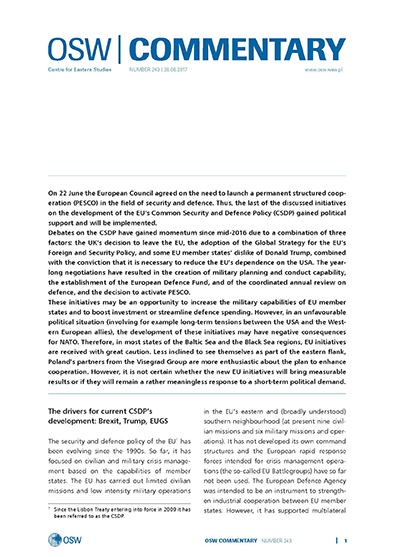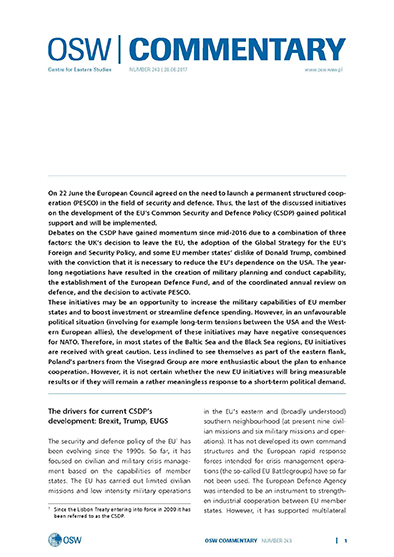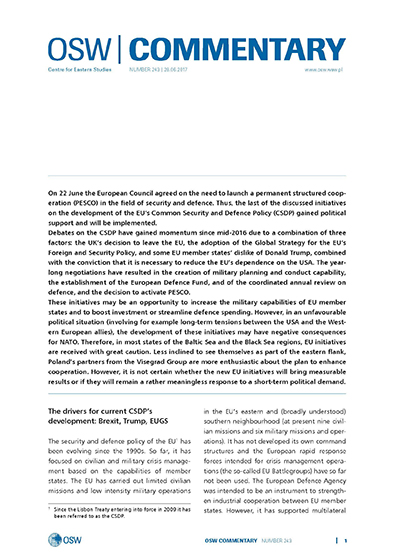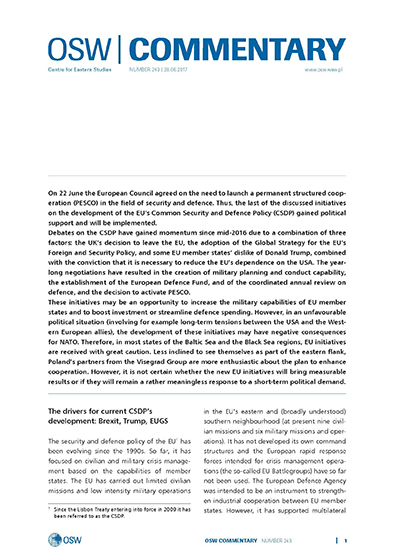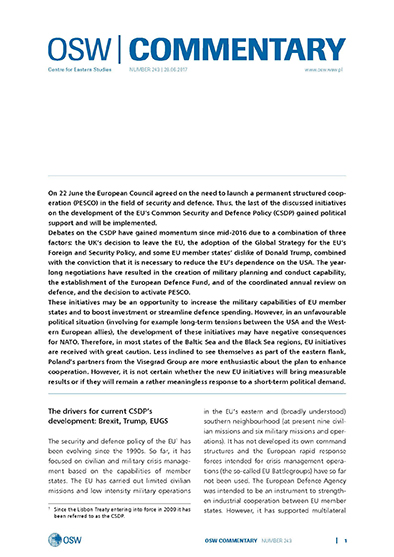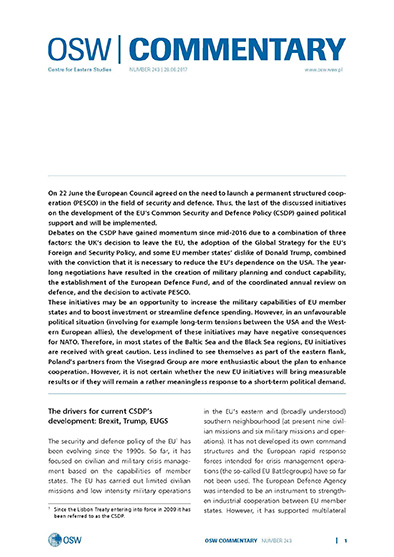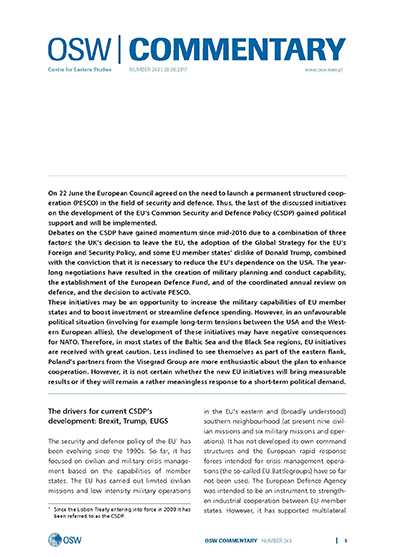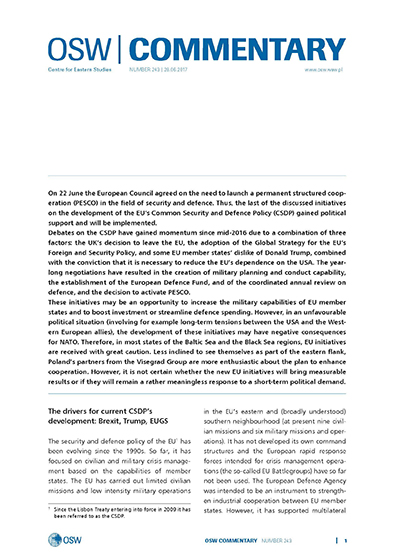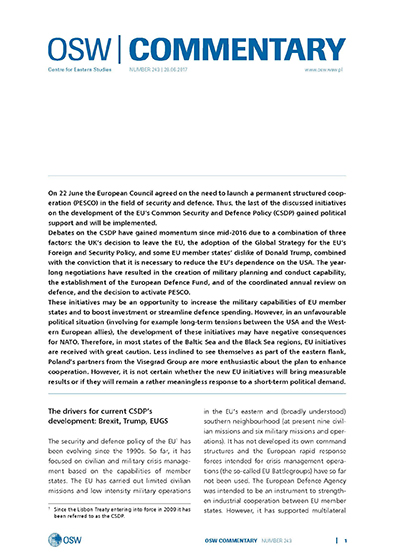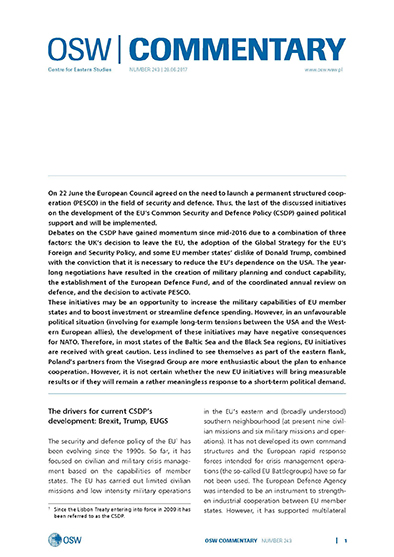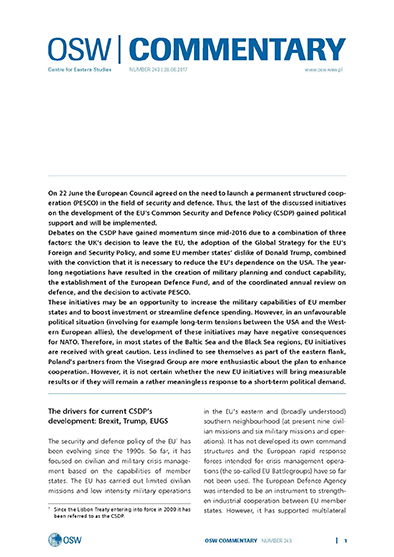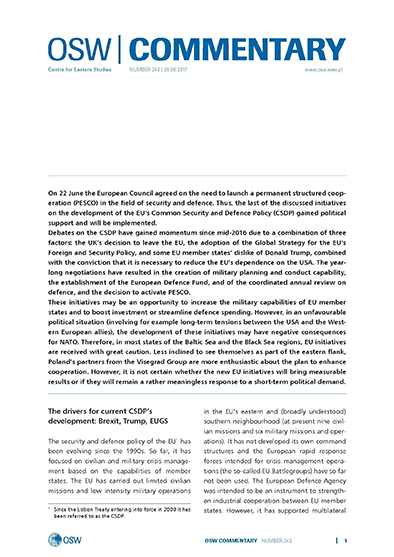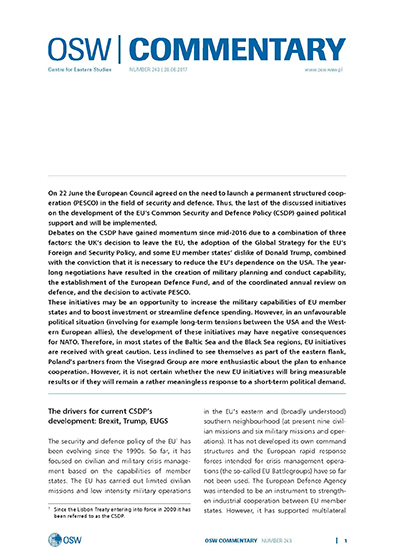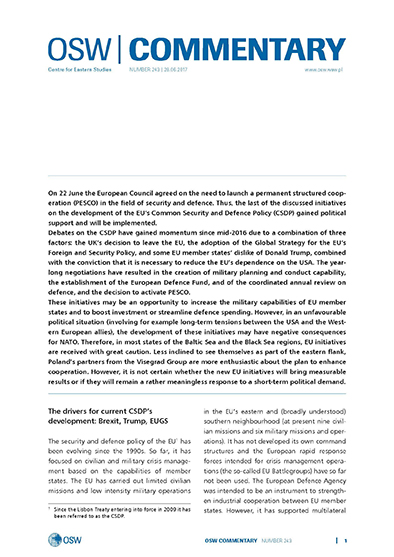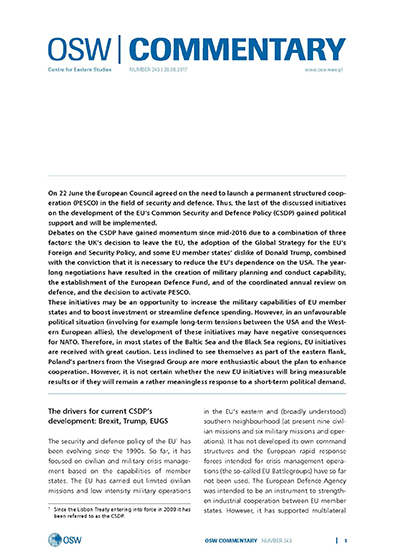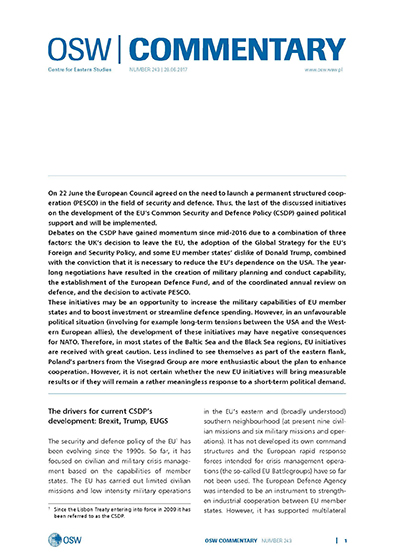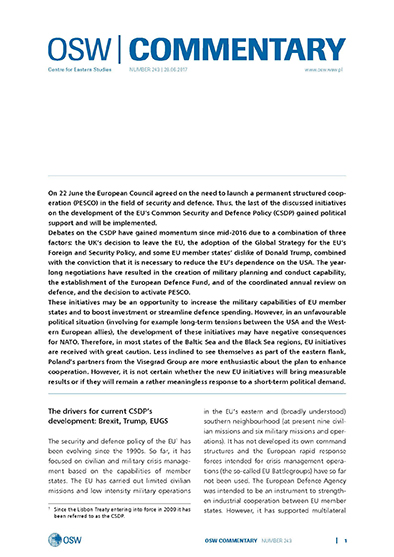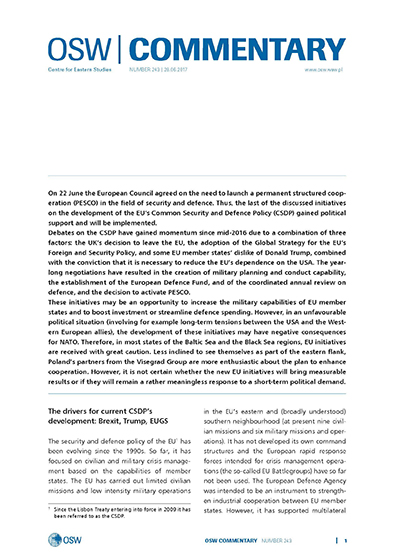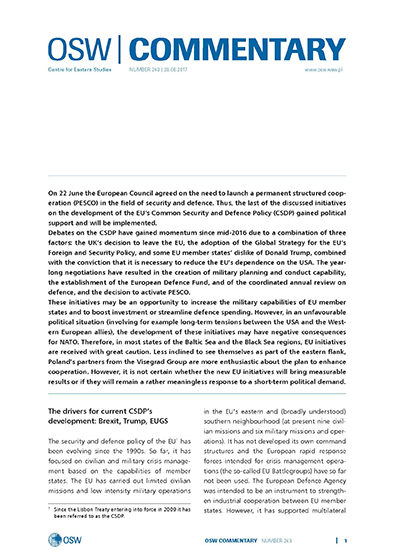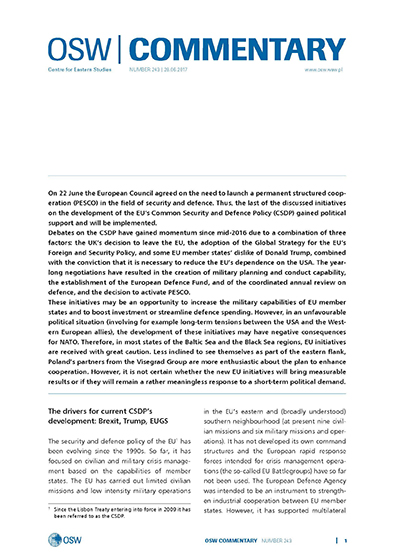
The EU on granting China market economy status: a compromise or a dodge?
China joined the World Trade Organisation (WTO) in 2001 as an economy which was undergoing transformation and did not yet have market economy status (MES). This enabled other WTO members, including the European Union, to be more flexible in imposing anti-dumping tariffs on Chinese exporters. China’s accession protocol provides for the elimination of one of the anti-dumping procedures after 15 years, i.e. in December 2016. The upcoming changes have fuelled a dispute in Europe regarding the interpretation of the conditions of China’s accession to the WTO and the future of trade relations between the EU and China.
More...
